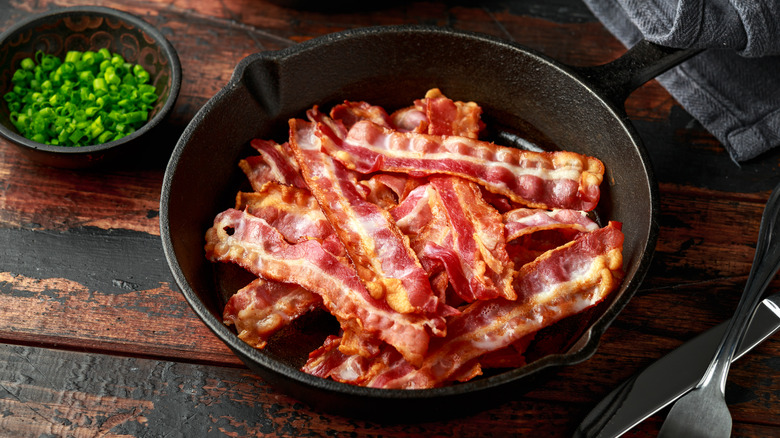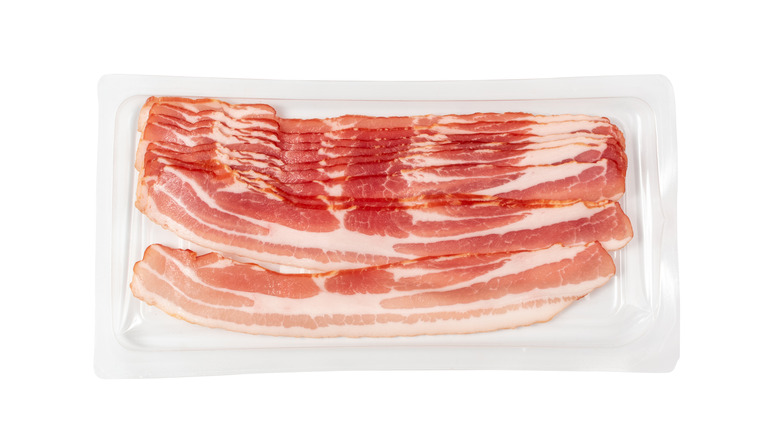Don't Let Misconceptions Keep You From Buying Reduced-Sodium Bacon
Just reading the word bacon is sure to send many a salivary gland into overdrive. Used in dishes and meals from eggs, salads, and soups to mac and cheese, pizza, potatoes, and even bacon jam, these slim strips of cured pork belly are so popular there's even an unofficial Bacon Day in December. But along with the deep and abiding adoration of these sizzling, meaty morsels comes a sizable side of sodium intake. Luckily, there's a solution: reduced-sodium or low-sodium bacon.
Now, before you go getting all salty about it, let's take a moment to consider this oft-maligned alternative. Obviously, bacon labeled "reduced sodium" will have less sodium than a regular pack, but what most people fear is whether or not less salt will mean less flavor.
Turns out, according to writer and recipe developer, Aaron Hutcherson of The Washington Post, it tastes just as salty and delicious. In fact, it tasted so good to Hutcherson that he reached out to a meat extension specialist at the University of Wisconsin at Madison, Jeffrey Sindelar, to find out "why all bacon isn't made with less sodium." Sindelar says consumer expectations are the driving force behind bacon's high-sodium content, asserting that "some companies will lose market share if they reduce sodium (while others do not) since the majority still prefer 'regular' salt bacon." The number one takeaway? If you want lower sodium bacon choices with all that same great bacon-y flavor, you'll need to vote with your wallet.
Sodium, in moderation, is good for the body
While sodium is an important mineral that helps our bodies keep fluids in balance and nerves and muscles functioning smoothly, you don't need a lot of this tasty electrolyte to keep your body happy. In fact, getting your sodium out of balance could pose increased health risks. According to the Centers for Disease Control and Prevention (CDC), a high-sodium diet can raise blood pressure and increase the risk of heart disease and stroke, with the daily recommended sodium allowance being less than 2,300 milligrams (mg), per the FDA.
On average, a single, regular strip of bacon has a whopping 180mg of sodium, though this varies depending on the individual brand. For example, two pieces of America's most-eaten bacon Oscar Meyer's Original contains 350mg for its serving size of two pieces — that's 175mg per piece. Having three or four slices of even the absolute best bacon with breakfast would mean using up a hefty portion of your daily sodium intake. Compare that with low-sodium bacon (140 mg of sodium or less), reduced-sodium (at least 25% less), and light-sodium or lightly salted (50% or less sodium) and that's a significant difference in terms of staying under the daily recommendation.

